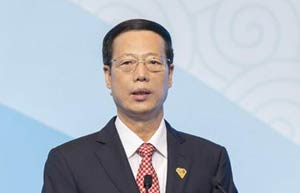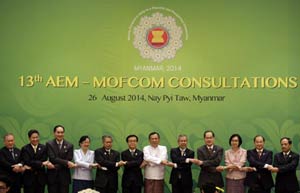One of the leading China studies centers in the UK is the School of Contemporary Chinese Studies at Nottingham University, which was founded in 2007. It has its own research arm, the China Policy Institute.
|
 |
 |
"A stronger Oxford center will mean greater competition, which should result in everyone getting better and being more competitive. It is good for Chinese studies," he says.
Tsang, however, insists a modern university like Nottingham could still have the edge over an ancient, diverse college-based university like Oxford.
"Given the collegial nature of Oxford University, how far the China Centre can coordinate research on China across the whole university remains to be seen," he says. "The structural constraints there are greater than a more centrally-run modern university."
China centers outside of the West are having to adapt to new approaches to studying China.
The Centre for Chinese Studies at Stellenbosch University, the result of a bilateral commission between China and South Africa in 2004, was originally a Confucius Institute but converted to a research center for China-Africa relations five years ago.
Set among Western Cape vineyards, it is the only such center in sub-Saharan Africa.
Ross Anthony, acting director, says starting from scratch in the developing world has given Stellenbosch certain advantages.
He says the center has been able to go straight to being a multi-dimensional China center without the Sinological detour because there had never been a previous tradition in Africa.
"It is like the leapfrogging over landline telephones to mobile phones," he says.
Anthony says any African China center is likely to take on a different character from those in Europe or North America.
"Most scholars specializing in China-Africa relations are not Sinologists-they come from development studies, African studies, economics, anthropology and other areas.
"Because China's influence in this region is so recent, there is very little in the way of a previous disciplinary framework. In this sense, the emergence of the field is a hotchpotch of different fields and methodological approaches."
He says the center also battles with the fact there is little support for China education on the continent, such as teaching Chinese in schools or supporting Chinese educational programs.
"Despite decolonization being over a half a century ago, there is still a tendency to view world history as essentially European history," he says.
Dube at the University of Southern California, however, argues it is not just in Africa where there is a need for more China expertise.
"I think that is a problem facing us all. The sudden rise of China means there is inevitably a lag between the number of China experts available and the demand for them," he says.
Kirby at Harvard also believes this is a major issue facing all China centers.
"I think that is inevitably correct. China centers will demand strong leadership, commitment and enterprise and an entrepreneurial spirit for development to combat some of these issues," he says.
Brown at Sydney says the fundamental new role of China centers such as the new Oxford one, has to be encouraging more engagement with China.
"China centers need to be more imaginative in getting people engaged with China.
"Of course they should not lose their academic credentials and there is a need for hardcore doctorate research in very specialist areas but there needs also to be more entrepreneurialism and more vision," he says.
